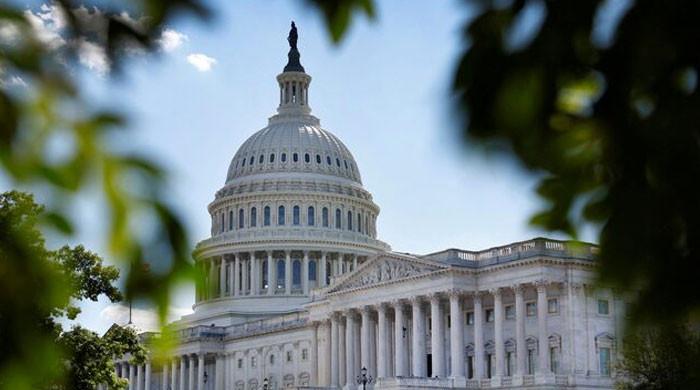WASHINGTON: The Republican-controlled US Senate has voted against a resolution that aimed to limit President Donald Trump’s authority to take military action without Congress’s approval.
The Democratic proposal was focused on preventing further US strikes on Iran without a formal green light from lawmakers, but it failed to pass after a mostly party-line vote.
The Senate voted 53 to 47 against a war powers resolution that would have required congressional approval for any new hostilities with Iran. The vote mostly followed party lines, except for Pennsylvania Democrat John Fetterman, who sided with Republicans, and Kentucky Republican Rand Paul, who supported the Democrats.
Senator Tim Kaine, who led the resolution, said it was an effort to restore Congress’s authority under the US Constitution to declare war — a power that belongs to lawmakers, not the president.
“If you believe the president should come to Congress first — whether or not you support war with Iran — you’ll support Senate Joint Resolution 59. You’ll support the Constitution that has stood the test of time,” Kaine said ahead of the vote.
Lawmakers have continued to push for details about last weekend’s US strikes on Iran and the current status of Iran’s enriched uranium stockpile.
Earlier on Friday, Trump sharply criticised Iran’s Supreme Leader Ayatollah Ali Khamenei, scrapped plans to ease sanctions on Iran, and said he was open to further strikes if Iran was enriching uranium to dangerous levels.
He was responding to Khamenei’s comments following a 12-day conflict with Israel, which ended after the US launched bombing raids on Iran’s nuclear sites.
‘Obliterated’
Trump’s national security team held closed-door briefings for members of the Senate and House of Representatives on Thursday and Friday. Many Democrats said they were not convinced by the briefings that the nuclear sites had been “obliterated”, as Trump had claimed.
Opponents of the war powers resolution argued that the Iran strike was a limited action and fell within Trump’s authority as commander-in-chief — not a broader military campaign.
Senator Bill Hagerty, a Republican from Tennessee and former ambassador to Japan, said the resolution could restrict any president from acting swiftly in a crisis.
“We must not shackle our president in the middle of a crisis when lives are on the line,” Hagerty said.
Trump has repeatedly denied suggestions that damage to Iran’s nuclear programme was less severe than reported. Iran, meanwhile, insists its nuclear work is aimed only at civilian energy use.
Under US law, Senate war powers resolutions are considered privileged — meaning they must be voted on promptly. Kaine introduced the measure earlier this month.
However, for the resolution to take effect, it would have needed to pass both the Senate and the House of Representatives. House Speaker Mike Johnson, a close Trump ally, said this week he did not believe the timing was right.
Kaine also brought forward a similar resolution in 2020, during Trump’s first term, to limit presidential powers to wage war on Iran. That earlier version passed both chambers with some Republican support but failed to override Trump’s veto.


